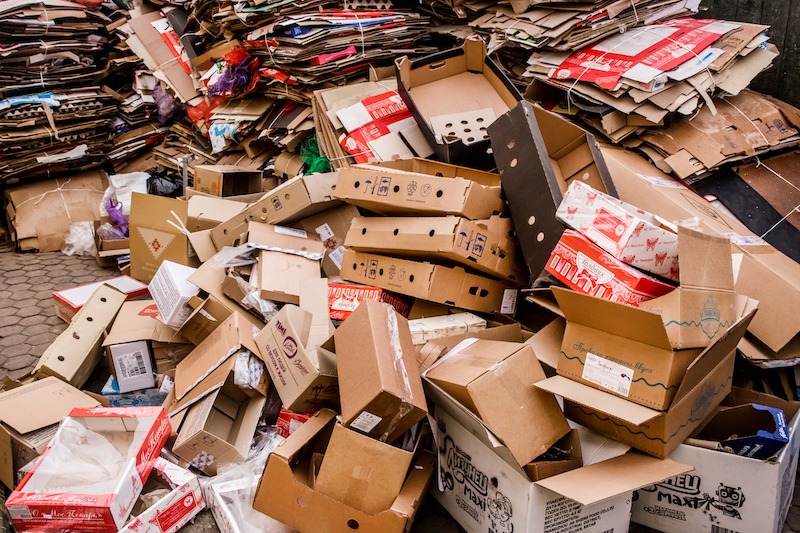Sustainable Packaging in the UAE E-Commerce Industry
Waste Management

August 27, 2020, 4:23 am
By Zehra Farhan
The tech-savvy population of the UAE has put the country at the forefront of online shopping in the Middle East. The rise in digital penetration, together with, increasing trust in online payments and mobile wallets has driven the steady growth of e-commerce in the UAE. According to Statista, a German online portal for statistics, online platforms in the country are expected to show an annual growth rate of 16.3% resulting in a projected market volume of US$10,504m by 2024. Currently, user penetration in 2020 is at 67.8% and is expected to hit 68% by 2024. In addition to this, a Euromonitor International report suggested that non-store retailing – which includes online shopping, will grow 78% by 2023.
While the industry grows at an unprecedented rate, so do fears circling its impact on the environment. One of the biggest environmental concerns linked to the e-commerce industry is packaging. The shift to online shopping has led to a tremendous amount of single-use plastic and other packing materials. Although there is no official figure, millions of tonnes of packaging waste is estimated to be produced by the e-commerce industry worldwide every year. Unfortunately, most of this waste ends up in landfills and oceans. The environmental footprint of the e-commerce industry is already frowned upon and unnecessarily excessive packaging only adds to the problem. While many big and small online businesses around the world are progressively making efforts to reduce over-boxing practices and adopt more sustainable packaging options, the road to sustainability in packaging is still long.
Eco-friendly initiatives are not a thing of niche markets and few forward-thinking companies anymore. They are now a standard that must be reached to make a mark. Packaging also plays an important role in the customer brand experience in online purchases, therefore, businesses are increasingly inclined towards innovative packaging solutions such as smaller package sizes and more sustainable materials to create an impression on and retain the maturing eco-conscious customer base.
While some of the largest online retailers in the region are still delivering orders in needless extra packaging, it is the new, small, and medium-sized enterprises that are increasingly embracing the sustainable route. Sprii.com, a mother and baby online retail portal in the UAE is a good example of local businesses taking the sustainability road in terms of packaging. “Our sustainability journey has been a ‘work in progress’ for the last four years, tackling everything from a more organic product offering on our website to moving away from plastic packaging. We use recyclable cardboard for our packaging with a permanent focus on reducing our dependence on plastic packaging”, says Sarah Jones, CEO and Founder of Sprii.com.
With emerging businesses increasingly realizing the importance of sustainability, both for the sake of the environment and making their business successful, a significant shift towards improved sustainability practices can now be observed. In addition to reducing packaging size and material, online companies are now using sustainable packaging that can be repurposed. UAE based Koita, an organic milk and beverage company is adamant upon using recyclable packaging. “From using 100% recyclable tetrapak paper packaging to paper and jute bags for online order deliveries, we continuously strive to stay committed to our sustainability goals”, says Mustafa Koita, CEO and Founder of Koita Foods. In 2019, luxury fashion portal, Ounass in UAE also launched locally manufactured eco-friendly boxes as default packaging for all their orders to take a step towards sustainability and bring it closer to the image of luxury retail.
Switching to sustainable packaging not only reduces environmental stress but also impacts businesses positively by expanding their customer base and brand loyalty. It can also consolidate storage and significantly decrease shipping costs. With considerable business benefits and the meagre state of environmental affairs, it is about time big players in the Middle Eastern e-commerce industry follow suit of smaller businesses and align themselves to improved sustainable goals.










